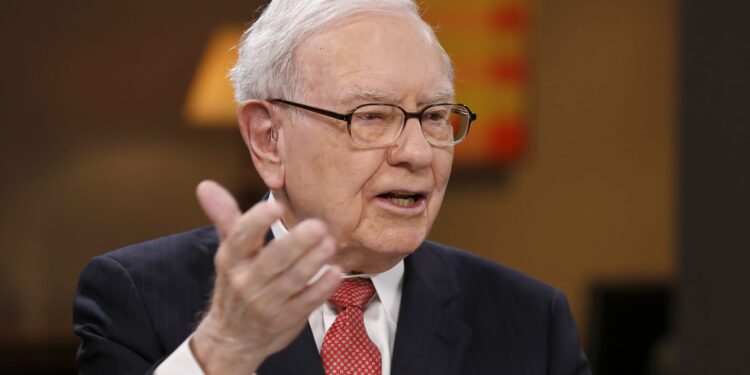Top bosses at Berkshire Hathaway are usually tight-lipped about their market outlook, but recent investment actions from the executives are saying a lot. News broke earlier this week that Ajit Jain, the conglomerate’s insurance chief for nearly 40 years, sold more than half of his Berkshire stake worth $139 million. That marked the biggest sale of Berkshire stock by the 73-year-old vice chairman of insurance operations since he was hired by Warren Buffett in 1986. Those sales came on the heels of Berkshire Class A stock closing above $700,00 for the first time ever and the Omaha-based giant topping a $1 trillion market capitalization , the first time a company outside technology reached that milestone in the U.S. That led some to believe that Jain at the very least was signaling Berkshire shares are no longer cheap. The stock has gained nearly 24% in 2024, outperforming the S & P 500, which is ahead 18%. “I think Ajit sold because the stock was fully pricing the business,” said Steve Check, founder of Check Capital Management, which has Berkshire as its biggest holding. BRK.A YTD mountain Berkshire Hathaway Buyback slowdown Judging from Berkshire’s lack of buyback activity, Buffett, the “Oracle of Omaha,” might hold the same view. Berkshire bought back just $345 million worth of its own stock last quarter, far below the $2 billion repurchased in each of the prior two quarters. Buffett only buys back shares when he thinks the stock is selling for less than it’s worth. He believes it would be “value-destroying” if he overpaid for Berkshire shares. The legendary investor tempered investor expectations earlier this year, saying his sprawling empire may only slightly outperform the average American company due to its sheer size and the lack of buying opportunities that could make an impact. ‘With our present mix of businesses, Berkshire should do a bit better than the average American corporation and, more important, should also operate with materially less risk of permanent loss of capital,” Buffett said in his annual letter. “Anything beyond ‘slightly better,’ though, is wishful thinking.” Brian Meredith, Berkshire analyst at UBS, correctly predicted that Berkshire, the owner of Geico insurance and BNSF Railway, would join the ranks of companies with a $1 trillion market value. Using a sum-of-the parts valuation method, Meredith estimated that Berkshire Class A shares are fully valued at $759,574, or about 6% above a recent high of $715,910. Downsizing big bets Buffett, the 94-year-old CEO and chairman, might also think some of his favorite stocks are getting too expensive. He dumped another chunk of Bank of America shares this week, bringing his total sales to more than $7 billion since mid-July and reducing his stake to 11%. That’s on top of his head-turning sale of Apple in the second quarter. Berkshire offloaded a little more than 49% of the tech stake, although Apple remained the largest stock stake by far in Berkshire’s portfolio even after the sale. Berkshire has been a seller of stocks for seven stright quarters, but the selling accelerated in the second quarter with Buffett shedding more than $75 billion in equities. That brings the total of stocks sold in the first half of 2024 to more than $90 billion. Buffett’s sale of large pieces of Apple and Bank of America, his top two holdings, could be portfolio management, and he has also hinted that saving on taxes could be a motivation. But the magnitude of the sales could also suggest a bearish attitude toward the market and stock valuations.







